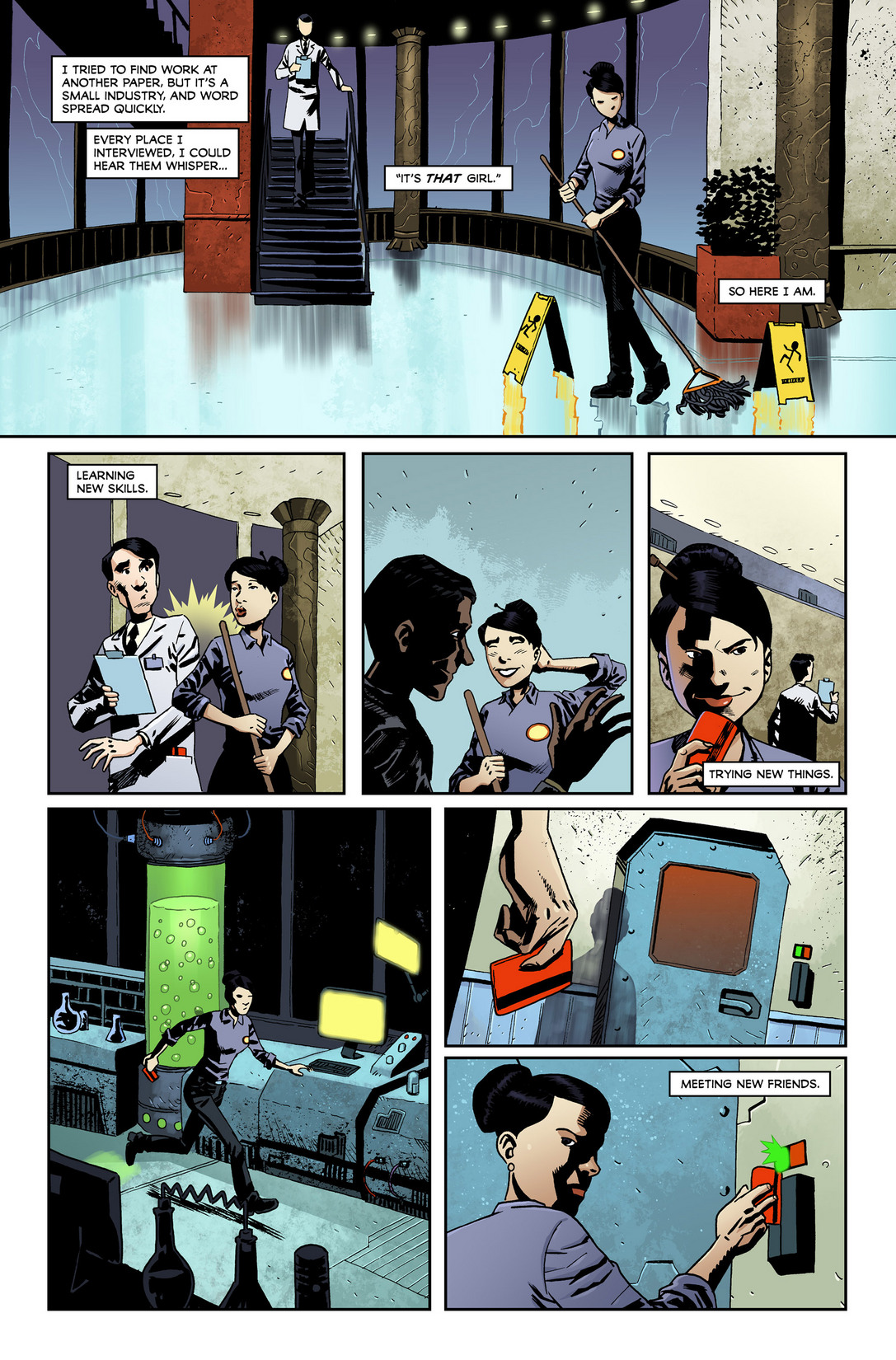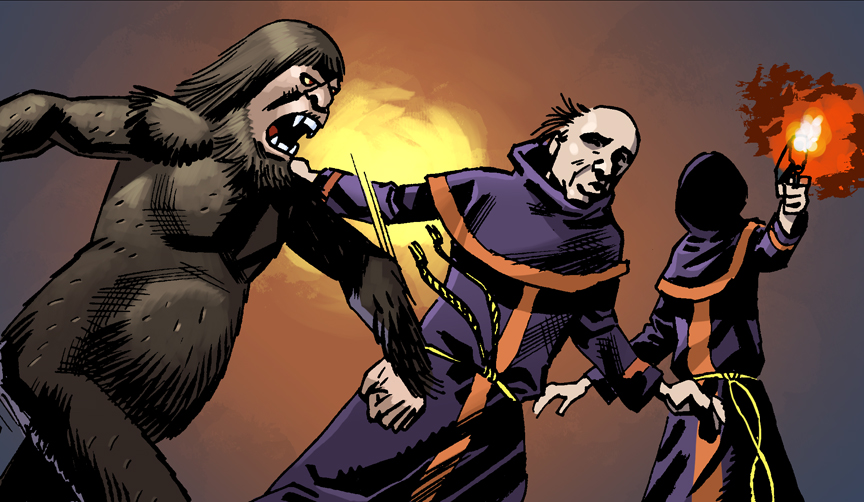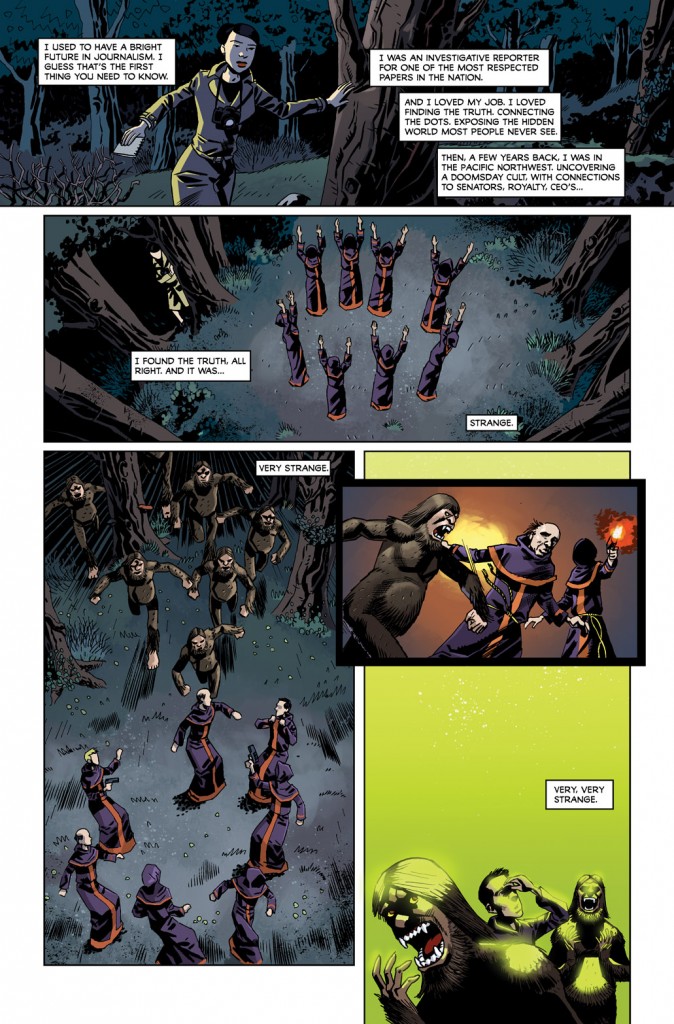In a world of superstitions and urban legends—of bad History Channel reality shows and the conspiracy theorists who host them—Strange Nation is drawing on an untapped phenomenon in American culture. It’s about time someone did. And Norma Park is there on the front lines getting the scoop.
Strange Nation #1 is one of the most effective first issues I have ever read. For one, I really like Norma Park. She’s a serious journalist in pursuit of the truth, even if that truth is bad for her career, her reputation, and her family life. Despite these high risks, Norma is great at what she does. She puts her work before herself, lives according to a moral code, an ideal—the pursuit of truth—and persists when everything and everyone seems to be working against her. Because of these reasons, Norma Park is a superhero—yes, a superhero of the highest quality.

Secondly, Strange Nation successfully melds a sense of humor about the subject matter and a tone necessary to tell a serious story. Yes, it’s ridiculous when bigfoots pour out of the forest to disrupt the meeting of an all-powerful and influential cult only to then have that disruption be disrupted by UFOs. However, it is far from an all-for-nothing spectacle. Pay very close attention to the cultists’ robes; you’ll see some hidden away in the home of a crucial character later on—and that’s just one of a few secrets buried in the text.
Another has to do with the identity of Norma's partner. Jesse Vernon is the most perfect sidekick you could ask for in a story like this. Why? Well, Jesse Vernon is a fake name. He changed it after he faked his death in 1977. I love that the date of death is all that they provide in identifying this character—although, there aren’t many pompadour-donning, side-burn clad celebrities who conspiracy theorists believe faked their death in that particular year. However, that’s all I care to say on that front.
The big point that I’m trying to make is that Norma, a first class hero, is up against first class antagonists. So many of her decisions require sacrifice. Nowadays, too many stories contain too many primary characters with nothing to lose. Norma is right on the front lines of this battle, and it runs deeper than she could ever imagine. Who knew journalism could be so high-stakes? The final pages conclude a thorough and tight first issue, while also leaving open plenty of threads for further development.
Paul Allor is the writer of Strange Nation, and you couldn’t ask for a better creative head. While Monkeybrain has a knack for unearthing lesser-known talent, Allor is by no means new to the business. Having written for big and small titles alike, he brings more than just experience to the table; he also brought along editor, Rob Anderson. Anderson is the writer of Rex, Zombie Killer, which Paul Allor, in turn, edited. Clearly these two complement each other well, and I look forward to seeing what else they have in store.

And Juan Romera’s artwork is far from an afterthought. Long shadows and dark rooms help establish the tone that Allor is striving for. Strange Nation is a story loaded with characters that have secrets. The challenge is to depict a good poker face, which for obvious reasons is a trying task in and of itself. Romera has managed to convey this without making the secret all but obvious. The comic book artist is truly underappreciated. Unlike with actors, all emotion is created by one hand.
Strange Nation #1 is a comic that I can’t wait to follow up with. The first issue of a comic is, I believe, the single most important issue. The creative team is expected to set an interesting story in motion without giving away too much, to establish depth of character while leaving room for growth, and providing the reader with enough incentive to continue reading. It needs to be the foundation that something substantial can stand on, the right seed for the climate. Strange Nation #1 is a rare example of success on all fronts.